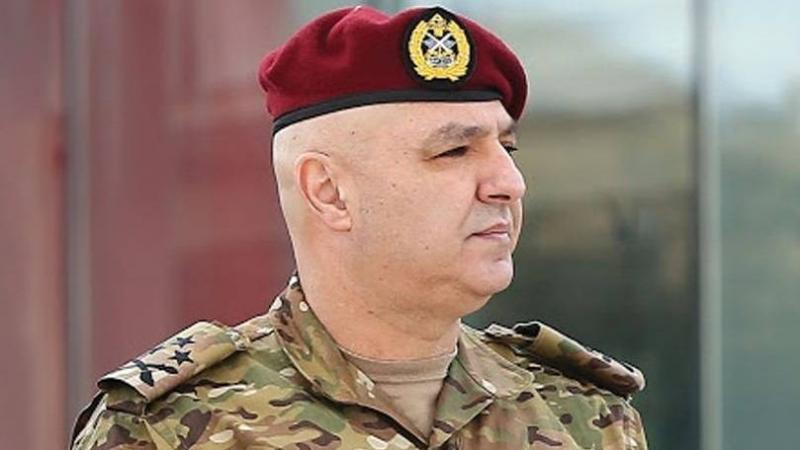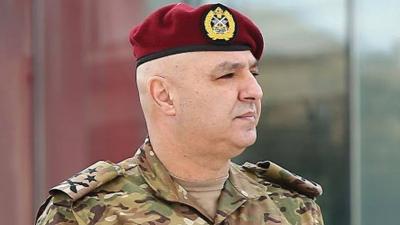An foreign observer watching the session to elect a new president struggles to understand the intricacies of the maneuvers of the resistance parties during a session that Speaker Nabih Berri intended as a test of intentions while keeping control of the presidential game in his hands. How can one explain that the Shiite duo represented by "Hezbollah" and the "Amal" Movement and their Christian allies from the "Free Patriotic Movement," led by the president's son-in-law, MP Gibran Basil, and the "Marada Movement," headed by former minister Sleiman Frangieh, cast 63 blank ballots because they do not agree on the party's candidate, Sleiman Frangieh? What does it mean that Tony Sleiman Frangieh, the son of the candidate, voted with a blank ballot? The sight of 63 deputies voting with blank ballots is, in itself, an affront to the principle of democracy and a mockery of the Speaker's desire to test intentions. Does this mean that "Hezbollah" failed to unify its ranks behind its candidate, Sleiman Frangieh, or does it not actually want him, given that the latter has a very limited number of deputies and it prefers to placate Gibran Basil and his movement since he serves it with a larger number of Christian deputies? Particularly as Basil is not a candidate and has previously informed some external parties that he is not a candidate "this time," as he is fully aware that he will not be elected for internal and external reasons due to American sanctions. The reality is that the farce of the 63 blank ballots shows that the democratic process is far removed from "Hezbollah," which maneuvers away from the truth on which it based its promise that Frangieh would be president after imposing President Michel Aoun in this position. However, reality contradicts this, as it undermines its promise with the antics of blank ballots that deceive no one. It is clear that "Hezbollah" prefers Basil over Frangieh, even asking both men to agree beforehand, knowing that Basil wants all influence for himself, wanting to keep Frangieh as a "token president," stripping him of power. There is no doubt that the "party" wanted to satisfy its allies, President Berri and candidate Frangieh, with such a farce to say that it is incapable of deciding between the two opposing allies, Frangieh and Basil, but the reality is it needs Basil more as he is more representative in the Christian street than Frangieh, who is an opponent of Samir Geagea, the head of the "Lebanese Forces" party. As for the votes of the new deputies known as the change-makers, they showed that they are far from change. Their inability to unite behind a single candidate and to use the name of a successful businessman, Salim Michel Ahd, without consulting him or his knowledge, reflects political naivety demonstrating the disintegration of the sovereignty opposition and chaos within these deputies. It would have been better for them to have given the candidate Michel Moawad the 11 votes that went to Salim Ahd, who does not aspire to any presidential position and is known as a prominent businessman who gives a lot to Lebanon, and is far from such a manner of electoral process that appeared to be a farce. If Moawad had received the additional 11 votes, the message of the sovereignty opposition would have been stronger against the resistance parties, which effectively refrained from voting for candidate Frangieh because, at its core, he is not their candidate, but "Hezbollah" is keen on accommodating him.
In the end, the presidential vacuum will persist, and deteriorate further in Lebanon until a name is agreed upon, as usual, that of Army Commander General Joseph Aoun, who receives agreement from all internal and external parties, even though it is an agreement lacking enthusiasm. General Aoun has informed the Americans that he is ready to run for the presidency and is accepted both internationally and domestically. There are some names being circulated for the position, including former minister Jihad Azour, who is a senior official at the International Monetary Fund and has experience in managing Lebanon out of its economic crisis, or international banker Samir Asaf, both of whom Lebanon needs for their competence and integrity. Unfortunately, it seems that the holders of the blank ballots are not ready for a genuine democratic election that offers people a choice between the most qualified individuals. The choice of the army commander will ultimately be agreed upon by all since he has not confronted "Hezbollah" and is internationally accepted and known for his integrity. The question remains: when is the next session scheduled, and will we see new names proposed just for testing, such as former ministers Ziad Baroud or Nasif Hitti, or will the army commander be elected at the constitutional time? The international community is interested in ensuring that the election takes place on schedule, but are the resistance parties concerned about the outside world or do they prefer the vacuum and handing over the management of the country to the caretaker government? The international community that wants to help Lebanon out of its predicament is less concerned about forming a government than about the Miqati government conducting the internationally required reforms. This is the most important thing for the United States, France, and perhaps Saudi Arabia, which has not yet received the Lebanese Prime Minister who spoke with the Saudi Crown Prince and the French President over the phone when the latter visited Jeddah last December. The kingdom has not invited the Lebanese Prime Minister, knowing that France and the United States support him and hope he continues in his position, and the reception granted to President Macron and U.S. Secretary of State Antony Blinken was evidence of this support. However, the caretaker government has not accomplished much in response to the International Monetary Fund's demands, and everyone abroad is pressuring Lebanese officials to move quickly in implementing reforms, particularly as the deadline for agreeing on maritime boundary demarcation is approaching, which gives a glimpse of hope that Lebanon desperately needs.




